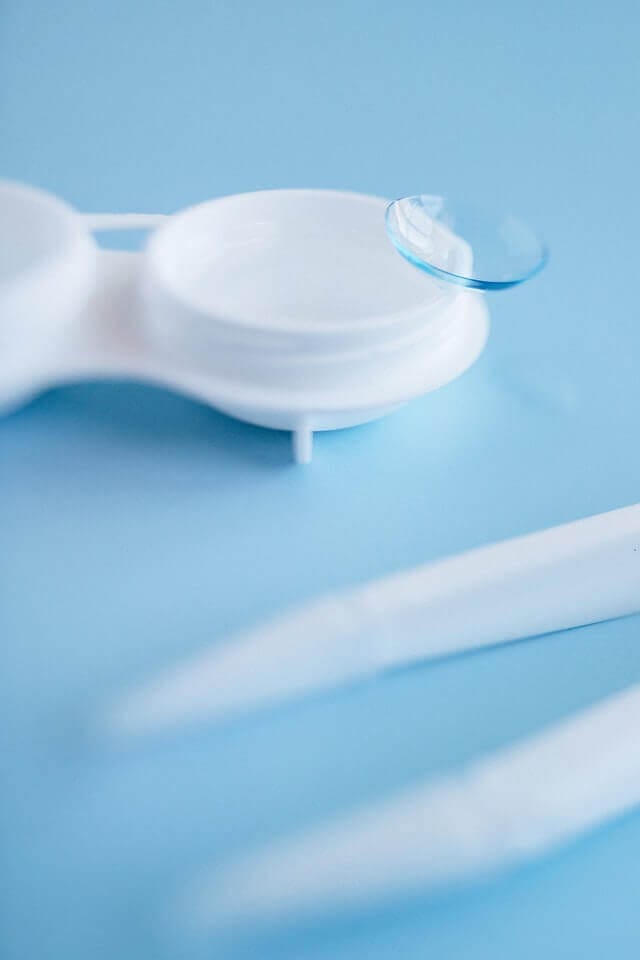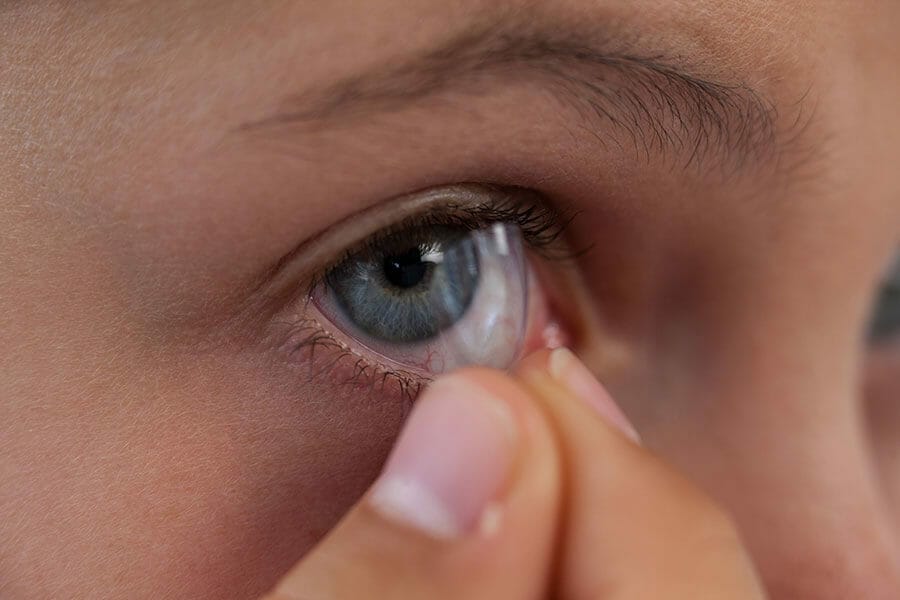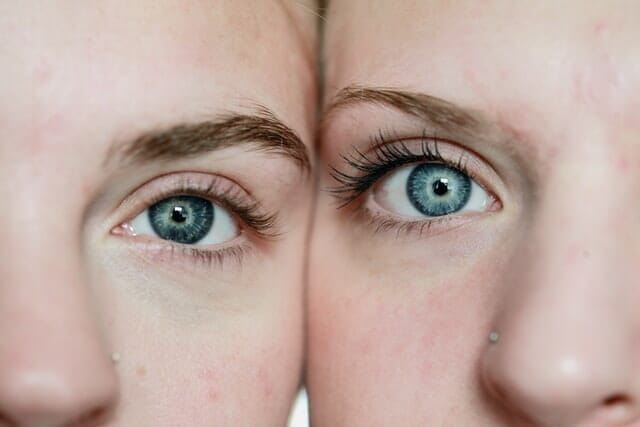NO! This can cause a lot of contact lens associated infections and problems such as eye infections, irritation and can even lead to permanent vision loss. It’s important to not expose the contacts to any type of water, including swimming pools, lakes, oceans, or tap water from showering. There can be various bugs, bacteria, microbes and viruses found in the water and if they are exposed to your contact lens they can latch onto the contact and cause an eye infection, inflammation, irritation, potential vision loss, and possibly require for you to get a corneal transplant. It’s important to remove your contacts before entering any bodies of water. Wear prescription swimming goggles instead.



















